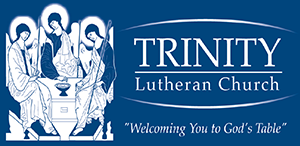As I reflect on the changes that are occurring in our world, I am struck by these two biblical verses and the truth that both embody. On the one hand, a new year is always a new start. However, we’re still the same people, living in the same world. Is 2021 the beginning of new things or is it just another year with “nothing [really] new under the sun?” Should we be optimists, looking for a brighter future that is just out of sight, or should we be pessimists who see the darkness of an ongoing pandemic, greed, and violence? I say, “Neither.” There is another option. What I would call a more realistic option. As Gordon MacDonald has said, as Christians, we should not be optimists or pessimists. We should be hopeful (see http://www.christianitytoday.com/le/currenttrendscolumns/leadershipweekly/ beyondpessimismoptimism.html).)
As Saint Paul tells us, “And hope does not disappoint, because the love of God has been poured out within our hearts through the Holy Spirit who was given to us. For while we were still helpless, at the right time Christ died for the ungodly” (Romans 5:5-6). Hope is not optimism. Hope is not a vague belief that somehow “things will get better.” Hope is not pessimism, the belief that nothing can ever really get better. Hope is trust that Someone – Christ – will someday “make all things new.” Hope – unlike optimism – recognizes that things really are broken beyond our ability to repair them on our own. Hope – unlike pessimism – also recognizes that we are not alone, and the God who loved us enough to be born and die for us also has the power to complete his work of resurrection.
Hope is the attitude expressed in the Stockdale Paradox: “Have unwavering faith that you will prevail in the end, but always confront the brutal facts.” The Christian version might be expressed as “Have faith that God will prevail in the end, that you will be delivered by the Father who loves you, but never ignore the harsh reality of how bad the situation really is.” The Stockdale Paradox is named after Rear Admiral James Stockdale, the highest-ranking U.S. officer to be held in the “Hanoi Hilton” prison during the Vietnam War. Stockdale managed to survive eight years of brutal torture by not succumbing to optimism or pessimism. When asked by author Jim Collins, “Who didn’t make it?” He answered, “That’s easy. The optimists.” He went on to explain that the optimists always thought that they were just about to be released, but when release didn’t come, they were crushed. Stockdale didn’t say it explicitly, but I’d say the pessimists didn’t make it, either. There were people who, sadly, gave up the idea of ever being released, and they were crushed as well. The ones who did make it lived in hope.
Stockdale said that one of the most important books for him was the Book of Job. As you know, Job’s story involved a lot of struggle, but, by the grace of God, it did turn out all right in the end. Hope means trusting that God will, eventually, remove all the evil and suffering. Until then, it’s up to us to do the work of hope with God’s help. Every person we help feed, every person who finds a home, every child who is comforted with a quilt, every refugee who is encouraged by our prayers – every person matters. The things we do make a difference. This isn’t optimism (we’ll fix it all) or pessimism (what’s the use – no one can fix it). It is hope. We can trust God and even experience joy as we get to work alongside the God of the universe who is “making all things new” – even us. If we believe that, there really will be some changes.
